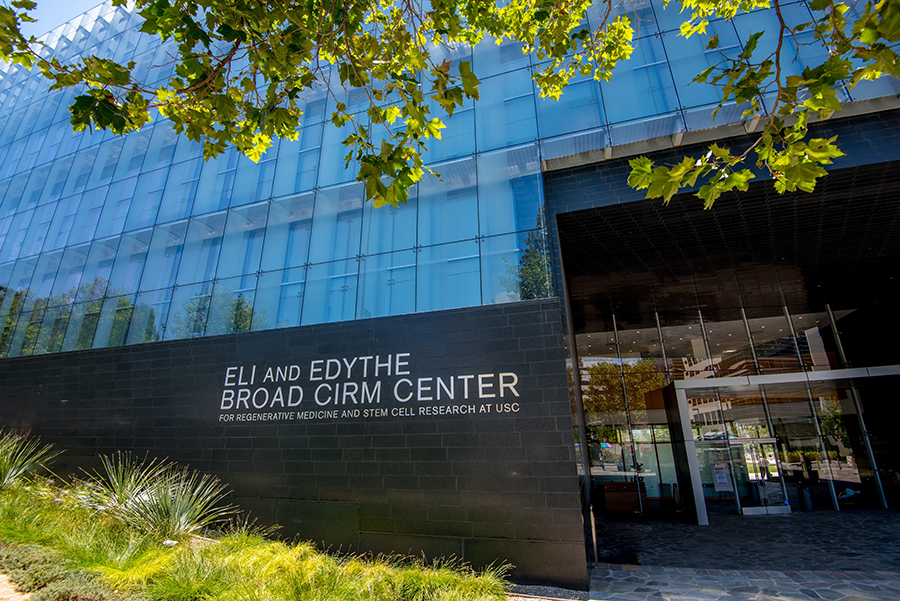
For the second consecutive year, USC’s master’s program in stem cell biology and regenerative medicine has been able to offer scholarships to its talented students. Supported by the generosity of an anonymous donor who established the Cardinal Scholarship, Atul Dhablania and In Cha Kim, and the Office of the Dean of the Keck School of Medicine of USC, these scholarships recognize need as well as academic achievement and community engagement.
This year’s Dean’s Fellowship was awarded to Gabriela Lopez in recognition of her efforts to give back to her community to promote diversity and help the disadvantaged, while the three Cardinal and Dhablania-Kim Scholarships recognized Tianli “Sheldon” Ding, Navneet Kumar and Manuel Santana for their academic excellence.
“We are so pleased to be able to offer scholarships for our master’s students, thanks to the vision and generosity of our donors and the Dean’s office,” said Francesca Mariani, faculty director of the master’s program. “Scholarship support is critical to increasing access for the diverse students that will become the next generation of stem cell leaders.”
The Dean’s Fellowship
Gabriela Lopez
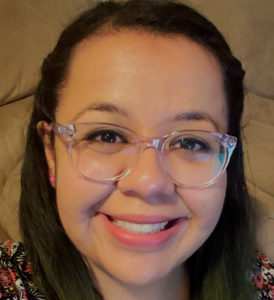
Gabriela Lopez was originally inspired to pursue medicine by her cousin, who passed away from a brainstem tumor when he was only four years old. To better understand how cancer and other diseases affect the human body, she pursued courses in electron microscopy and histology as an undergraduate student at East Los Angeles College, before transferring to California State Polytechnic University, Pomona, where she majored in biology and minored in chemistry.
It was during an internship at the Doheny Eye Institute that her future career path became clear: she wanted to serve patients not only as a physician, but also as a research scientist.
“After this enlightening opportunity, I realized that becoming a physician is not the only way to help those struggling with health issues,” she said. “Medical research helps the world gain a better understanding of diseases and potential ways to treat them, which is just as important as administering the treatments.”
The experience also introduced her to the potential of stem cells to revolutionize the treatment of a wide variety of diseases. When she learned that USC offered a master’s degree in stem cell biology and regenerative medicine, she applied and was accepted into the program with the Dean’s Fellowship.
Throughout her academic journey, Lopez has remained committed to serving her surrounding community. She was awarded the La Comunidad scholarship for her after-school teaching of science, technology, engineering and math (STEAM) for children in high crime neighborhoods. Eventually, she hopes to devote her medical practice and research efforts to improving health care for underserved populations.
“After competing my master’s degree, I can envision myself being prepared to become a physician-scientist, ready to take on any challenging diseases that we face in our lifetimes,” she said. “I want to help future generations live in a world where terminal illnesses no longer stand a chance against our determined research teams.”
The Cardinal and Dhablania-Kim Scholarships
Tianli “Sheldon” Ding
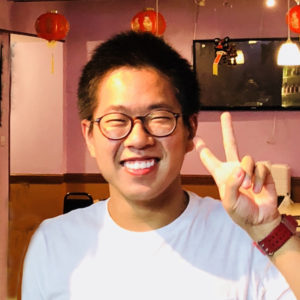
Tianli “Sheldon” Ding vividly recalls his introduction to the concept of an incurable disease.
“As a kid growing up in China, I watched a public service announcement about Alzheimer’s disease on TV,” he said. “At the time, I naively thought that life was like math homework and that every problem came with a solution or cure. Learning about Alzheimer’s disease was my first exposure to the idea of incurability.”
His desire to help patients with neurological disorders led him to major in psychology and minor in neuroscience at The Ohio State University.
After seeing neural stem cells under a microscope for the first time, he decided to learn more as an undergraduate research assistant in Elizabeth Kirby’s lab. He investigated how stem cells might be used to develop treatments for neurological disorders, and had the opportunity to present his research to the Brain Injury Association and the Chronic Brain Injury Program. He also received a $10,000 scholarship from the Ohio State University Arts and Science Honors Program to develop his research into a senior thesis. At the same time, he kept up with his recreational swimming, as well as community service activities including distributing COVID tests.
He continued to excel as a student, even after being diagnosed with acute lymphoblastic leukemia on his 21st birthday and undergoing chemotherapy that resulted in the remission of his cancer.
“The disease did impact my academic progress, but in a positive way,” he said. “Cancer forced me to adapt to unanticipated challenges and helped me figure out how to work more efficiently, which has better prepared me for my future study in the field of neuroscience.”
He was accepted into USC’s master’s program in stem cell biology and regenerative medicine with a Cardinal and Dhablania-Kim Scholarship, and intends to pursue a PhD degree in neuroscience with a focus on neural stem cell biology.
“In my future career as a neuroscientist,” he said, “I aspire to study the effective treatments for incurable neurological disorders, to eliminate stereotypes surrounding those with neurological disorders, and to enhance the social awareness of the challenges students with disabilities face in higher education.”
Navneet Kumar
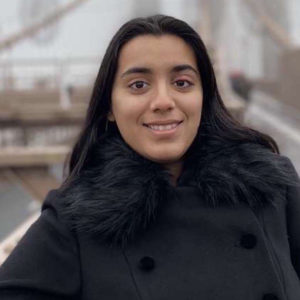
Navneet Kumar decided to become a doctor when her father was diagnosed with aggressive stage 4 Hodgkin’s Lymphoma, shortly after her family lost their home and business due to the 2010 economic downturn.
“The doctors showed empathy and confidence, and even went out of their way to find him health insurance,” he said. “They made sure that he did not feel alone during his battle with cancer. By the time my father was declared cancer-free in 2015, I was committed to pursuing research en route to becoming a physician in hopes of creating effective diagnostic methods and treatments for patients.”
While still a high school student, she began taking undergraduate courses at Maricopa Community College, and then transferred these credits to Arizona State University (ASU), where she double majored in Biological Science and Global Health.
At ASU, she joined Alexander Green’s lab, where she worked to develop a low-cost diagnostic test with the capacity to detect a variety of small molecules with high sensitivity. She also shadowed oncologists at MD Anderson, and performed research in the lab of Amber Wutich about the lack of access to health care and diagnostic equipment for breast cancer patients in Paraguay.
She earned several awards for her academic achievement, including the SHESC Cynthia Lakin Award, Barrett Community Scholarship, School for the Future Innovation in Society Research Grant and a President Barack Obama Scholars Program Award.
Kumar was accepted into USC’s master’s program in stem cell biology and regenerative medicine with a Cardinal and Dhablania-Kim Scholarship, and plans to enter an MD/PhD program with the ultimate goal of creating affordable and rapid diagnostics and new treatments for patients.
“By having a better understanding of disease impacts on the human body and by establishing preventative diagnostics,” she said, “I will be able to fulfill my goal of improving patients’ livelihoods.”
Manuel Santana
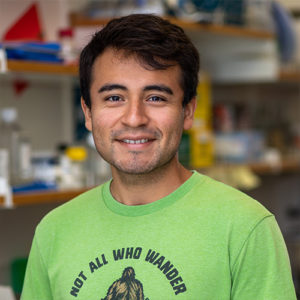
As an undergraduate majoring in biopsychology at the University of California, Santa Barbara, Manuel Santana spent countless hours pondering the enigma of the nervous system and its connection to the human mind.
“There seems to be a mismatch between human cognition and the material body,” he said. “How can an idea or concept be instantiated in a material object?”
Santana’s curiosity about such questions prompted him to join the laboratory of Antonio Damasio at the Brain and Creativity Institute at USC, and perform research identifying the brain regions that underpin social emotions in the decision-making of adolescents.
Inspired to learn more about the molecular basis of the brain, he completed the Biotechnology Program at Pasadena City College. He was then accepted in the CIRM Bridges Program, which enabled him to perform a year-long research internship studying ALS in the laboratory of Justin Ichida’s lab at the Eli and Edythe Broad Center for Regenerative Medicine and Stem Cell Research at USC. After his internship, he became a technician in the Ichida Lab, co-authored a paper in the journal Cell, and was accepted into the master’s program in stem cell biology and regenerative medicine with a Cardinal and Dhablania-Kim Scholarship.
After graduation, Santana intends to apply a PhD program in neuroscience with the eventual goal of entering academia.
“I hope to work in academia and teach at a local college or university in Los Angeles, where I can give back to the community that has served me throughout my life,” he said. “I also plan to stay connected with the scientific community by pursuing bench-side research. I am as curious today about the nervous system as I was as an undergraduate, and I look forward to the challenges and opportunities that lie ahead.”
To donate or learn how you might help the scholarship program, please contact Joel Smith, Senior Associate Vice President for Health Sciences Advancement, at Joel.Smith@med.usc.edu or visit https://stemcell.keck.usc.edu/support.
